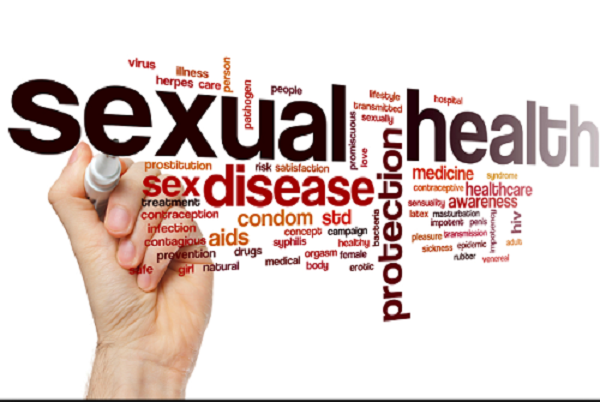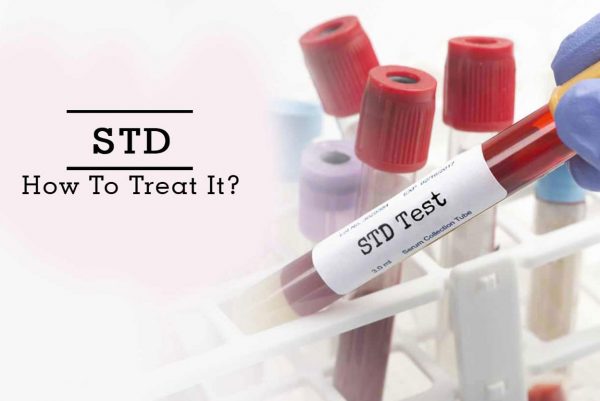Sexually transmitted diseases, or STDs, continue to be a significant public health concern in 2020. Even though these infections are preventable, they remain a significant problem, particularly among young people.
In today’s world, sexually transmitted diseases (STDs) are becoming increasingly common. According to the World Health Organization (WHO), an estimated 376 million new cases of curable sexually transmitted infections occur yearly. This alarming trend has prompted experts to issue warnings and recommendations for sexually active individuals. Here’s everything that you must know about STDs in 2020.
STDs are spreading with lightning speed across the world. Hence, it is essential to know about their herpes symptoms and herpes treatment in and out. In this news release, we gathered all the information you need about STDs in 2020.
The following groups must get their tests done regularly:
- For people aged between 15-65, getting tested for STDs 1-2 times a year is significant due to their sexual activity.
- Pregnant Women: All pregnant women should get a diagnosis for various STIs to be safer and protect the baby in every way possible.
- Men having sex with men: Men having sex with men have a higher risk of catching STIs. Hence, regular screening is advisable.
- People with herpes: People already suffering from STIs like herpes should get regular checkups to know the current situation’s updates.
- Sexually active people: Being sexually active is absolutely amazing. However, it is essential for you to get regular screening as the probability of catching STIs increases for those who are active.
What Are STDs?
Sexually transmitted diseases (STDs) are infections spread through sexual contact. Many STDs include chlamydia, gonorrhea, syphilis, herpes, human papillomavirus (HPV), hepatitis B and C, and HIV/AIDS.
Bacteria, viruses, or parasites can cause STDs. They are often asymptomatic, meaning they do not cause noticeable symptoms. However, even when symptoms are not present, STDs can still be transmitted from person to person.
How Are STDs Spread?
STDs are spread through sexual contact, including vaginal, anal, and oral sex. They can also be transmitted through non-sexual means, such as sharing needles or contacting infected blood or bodily fluids.
The risk of contracting an STD is higher for individuals who have unprotected sex, have multiple sexual partners, or engage in high-risk sexual behaviors.
What Are the Symptoms of STDs?
The symptoms of STDs can vary depending on the type of infection. Some STDs, such as chlamydia and gonorrhea, may cause no symptoms. Others, such as herpes and syphilis, may cause noticeable symptoms, such as painful sores or rashes.
How Are STDs Diagnosed?
STDs can be diagnosed through various methods, including blood, urine, and swab tests. If you suspect you have an STD, seeing a healthcare provider as soon as possible is essential to get tested and receive treatment.
To start with, below are the three types of tests that are pretty common to determine STDs
- Blood Test: It is mainly done to check HIV at later stages.
- Urine Test: Some STIs can be detected with the help of a urine sample.
- Fluid Test: If you have any sores in your genital area, the fluids from those sores might be taken to diagnose the nature of the infection.
Treatments for STIs:
- Antibiotics: Several antibiotics are available to help curb the symptoms of various STIs. This helps people diagnosed with STIs to live everyday personal, professional, and sexual life.
- Antiviral Drugs: These medications help people suffering from HIV or herpes to get some relief. They are not the way to curb these STIs, but they reduce the chances of them getting transmitted.
Being clear in your mind that you will fight STIs in every way possible.
Some tips that will help you prepare for an appointment
- Make a note of your symptoms
- Make a list of medicines that you are taking as of now
- Talk to your doctor without hesitation
- Ask as many questions as you want to your doctor
STDs and COVID-19
The COVID-19 pandemic has had an impact on STD testing and treatment. Many clinics have reduced their hours or closed altogether, making it more difficult for individuals to access testing and treatment. Additionally, social distancing measures have made it more difficult for individuals to meet sexual partners in person, but this has also led to increased online dating and virtual sexual activity.
Preventing STDs
The best way to prevent STDs is to practice safe sex. To prevent and reduce the risk of STDs, individuals must use condoms or other barrier methods during sex, get vaccinated against HPV and hepatitis B, and regularly get tested if they are sexually active.
It’s also important to talk openly and honestly with your partner about your sexual history and any concerns you may have about STDs. Communicating openly and taking proactive steps to protect yourself and your partner can reduce your risk of contracting an STD.
Conclusion
STDs continue to be a significant public health concern in 2020. However, by understanding the causes, symptoms, and treatment options for these infections and taking proactive steps to prevent them, you can protect yourself and your partner from STDs’ potentially severe health consequences.
Sexually transmitted diseases are a severe public health issue affecting millions worldwide. The best ways to prevent and treat STDs are to practice safe sex, get tested regularly, and seek medical attention if an infection is suspected. While the COVID-19 pandemic has made it more difficult to access testing and treatment, it’s essential to prioritize your sexual health and take steps to protect yourself and others.
This is all from our end. I hope that 2020 proves to be a better year for all those who are fighting with STIs.
Wishing you luck from team HSVBuddies!




